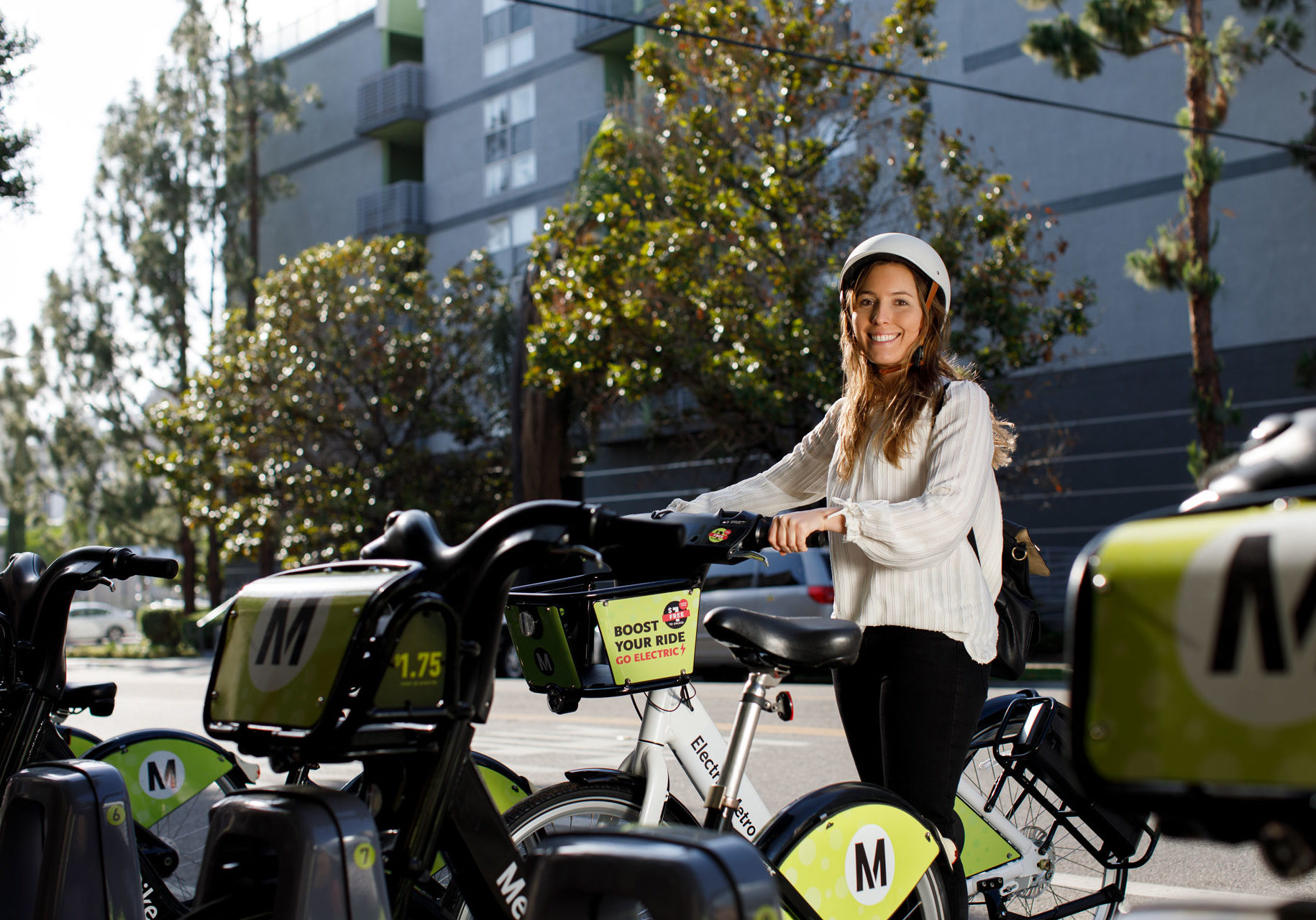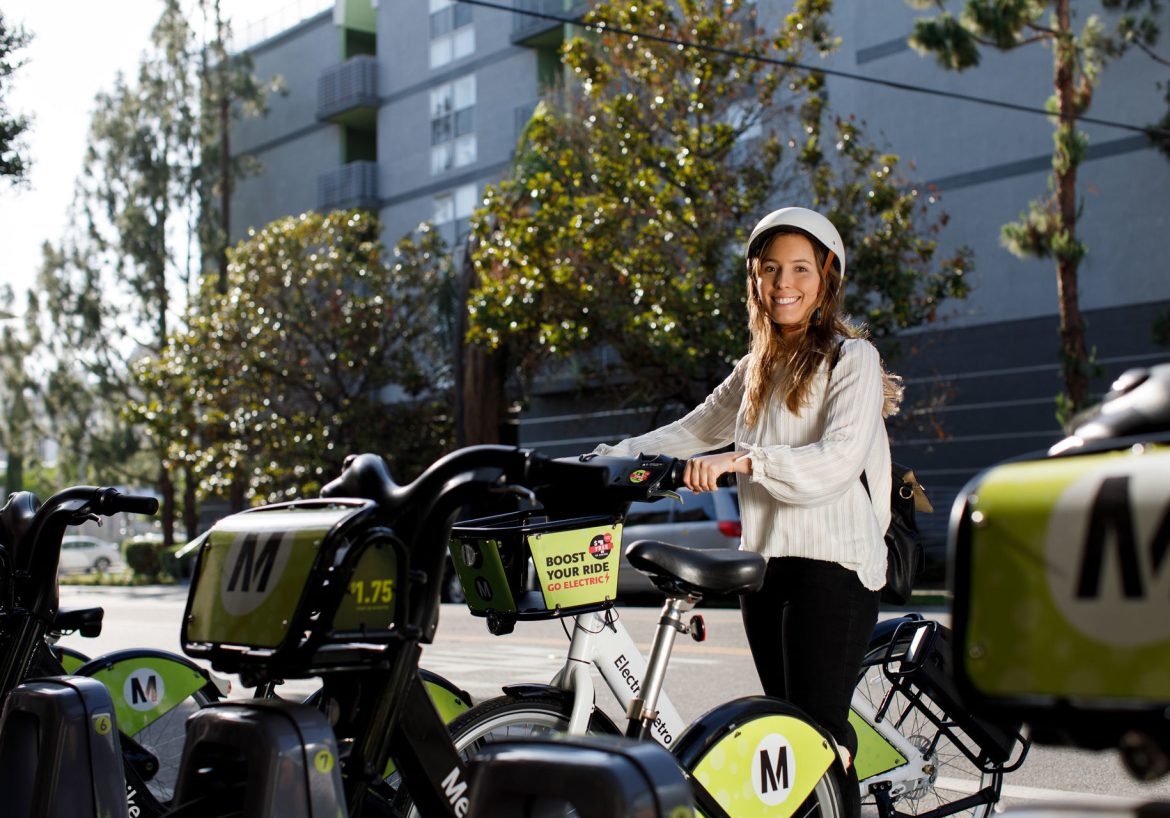We estimate Prop 30 will invest at least $18 billion in transportation programs that help Californians get around without having to get in a car.
If you’re familiar with Proposition 30, you’re probably aware that it would provide a once-in-a-generation investment to clean up transportation in California, which represents the single largest source of climate pollution and contributes to our chronically bad air.
Not only does Prop 30 aim to zero out pollution from passenger vehicles, which are the single largest source of climate pollution in California, it also goes after private and public fleets of cars, trucks, and buses and other medium and heavy duty vehicles used in passenger transportation, goods movement and construction. And for Californians who don’t own cars or would like to drive less, Prop 30 would invest in programs that reduce dependence on vehicles.
The California Air Resources Board (CARB), which regulates climate pollution for the state, has found that reaching our climate goals requires both cleaning up vehicle pollution and enabling more people to travel by walking, biking and public transit rather than driving. Providing increased access to walking, biking and public transit supports healthier, safer, more affordable, and economically stronger communities.
That’s why Prop 30 also invests in transportation options that make it easier for Californians to get around without needing a car. More specifically, one of the key goals of the measure is “increasing access to zero-emission clean mobility options that do not require car ownership” (PRC.1.47.80217(h)).
Prop 30 creates a dedicated funding program for CARB to administer that specifies the following investment categories in mobility options for Californians:
- The purchase of zero-emission public transit buses, trains and ferries, and the associated charging and fueling infrastructure. (And with California’s ambitious goals for 100% electric transit bus fleets, Prop 30 contributes billions towards bus electrification that will free up state and local funding for further clean mobility investments.)
- Transit passes, especially for low income and disadvantaged communities.
- The purchase of zero-emission school buses and the associated charging and fueling infrastructure.
- Support for zero-emission vanpools, as well as zero-emission car share and carpooling.
- The purchase of electric bikes, as well as investments in bike sharing and protected bike lanes.
Prop 30’s focus on accessing clean mobility options complements the electric vehicle funding programs in the Inflation Reduction Act that only helps Americans purchase zero emission vehicles (but not e-bikes) and install the associated charging and fueling infrastructure. And unlike the Bipartisan Infrastructure Act, Prop 30 also does not invest in any new highways or road capacity projects which has the potential to massively and counterproductively increase driving across California.
In sum Prop 30 takes a comprehensive approach to zero-ing out pollution, investing about $80 billion over twenty years to tackle the transportation sector, of which about $18 billion will go to programs that aren’t focused on passenger vehicles. And it would invest another $20 billion to fight and prevent wildfires, which are ravaging the state and putting smoke into the air that undermines the progress we’re making in reducing tailpipe pollution.
And it would do this by only increasing the state tax on personal income in excess of $2 million (meaning if you earn $2 million or less, you won’t pay a penny more). This would affect fewer than 0.2% of Californians, but benefit everyone. It’s an investment worth making.
Paid for by the NRDC Action Fund, in coordination with Yes on 30: Clean Air California, A Coalition of State Firefighters, Working Families, Rideshare Companies, and Environmental Groups. Content not authorized by any candidate or candidate’s committee.
Photo: Los Angeles County Metropolitan Transportation Authority


